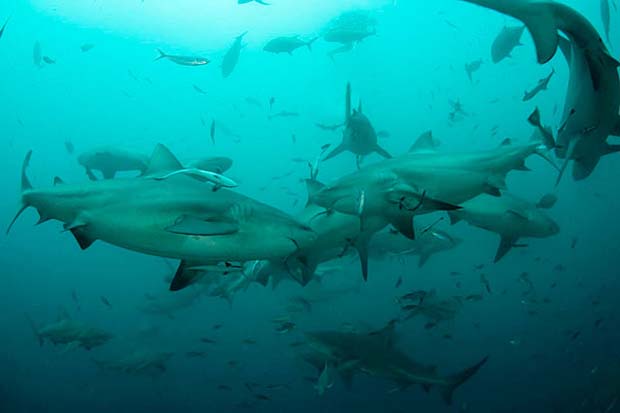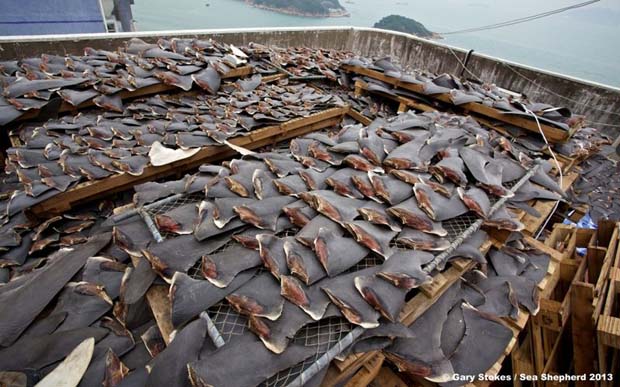Bangkok, Thailand – 03/01/2013 Pew Trusts:
[dropcap]A[/dropcap]ccording to scientific findings released recently in the peer-reviewed journal Marine Policy, the number of sharks killed each year in commercial fisheries is estimated at 100 million, with a range between 63 million and 273 million. The authors also warn that the rate of fishing for shark species, many of which grow slowly and reproduce late in life, exceeds their ability to recover.
The estimates in the study
Calculated by adding landed catch data reported to the United Nations Food and Agriculture Organization to estimates of unreported landings, finned sharks, and other discards of dead sharks – comes at a critical time. Governments convene this week in Bangkok to consider shark protections under a treaty concerned with regulating international wildlife trade – the Convention on International Trade in Endangered Species of Wild Fauna and Flora (CITES). The Pew Charitable Trusts is calling for immediate action to increase safeguards for some of the most vulnerable species.”Biologically, sharks simply can’t keep up with the current rate of exploitation and demand,” said Boris Worm, a marine biologist at Dalhousie University in Halifax, Nova Scotia, and lead author of the study. “Protective measures must be scaled up significantly in order to avoid further depletion and the possible extinction of many shark species in our lifetime.””This groundbreaking study confirms that people are killing an enormous number of sharks,” said Elizabeth Wilson, manager of global shark conservation at Pew. “We are now the predators. Humans have mounted an unrelenting assault on sharks, and their numbers are crashing throughout the world’s oceans.
 Driving some populations toward extinction
Driving some populations toward extinction
The catch of sharks in commercial fisheries for their fins, meat, liver oil, cartilage, and other parts remains largely unregulated in most of the world, driving some populations toward extinction. This week, 177 governments from around the world are expected to attend the March 3-14 meeting of CITES in Bangkok. Proposals to regulate the international trade of five species of sharks and two related manta rays have been submitted and co-sponsored by 37 countries for consideration at the meeting. The proposed shark species – the oceanic whitetip, porbeagle, and three types of hammerheads—are among the most valuable and vulnerable sharks in international trade.”A simple vote ‘yes’ to support their listing could turn things around for some of the world’s most threatened shark species,” Wilson said. “Countries should seize this opportunity to protect these top predators from extinction.”
See more at: pewtrusts.org/






